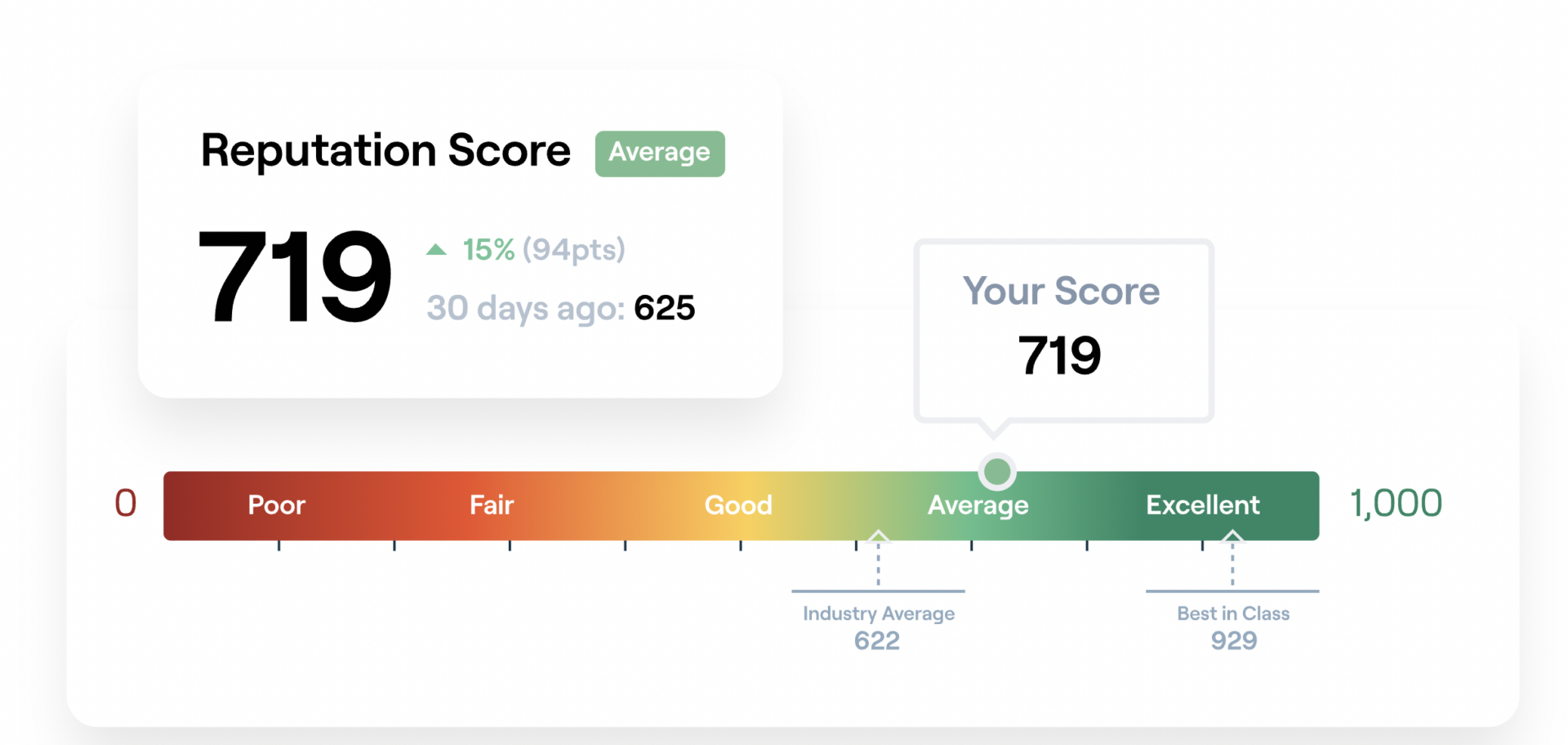What is a Good Reputation Score?
Reputation Staff Writer

Every business transaction has some basis in reputation. And reputation, like beauty, is frequently in the eye of the beholder.
Mess up your reputation and you’ll find that consumers and businesses alike will avoid dealing with you unless they have no other choice – just ask Uber or United Airlines. Reputation is one of the primary ways people screen the businesses they interact with and buy from. And that reputation is formed, post by tweet by review, in the digital universe, by real-world consumers, in real time.
Companies that disregard reputation do so at great risk. A company’s reputation is as much of an asset as its inventory, because without a strong enough reputation, how will that inventory get sold? A great reputation is a clear competitive advantage and inspires loyalty from both customers and employees.
What Is a Good Reputation Score?

While there is some degree of relativity involved when comparing Reputation Scores, most organizations want a figure they can hang their hat on—a number that they can see and know instantly that the company has a strong reputation.
With Reputation, a “good” reputation score would be anything over 600 (on a scale that goes from 0 to 1,000). A typical industry standard reputation score is around 525, and while it’s better than a bad reputation, it’s not going to do much to make a business stand out from its competitors. Once a reputation score inches above 600, that’s an indication that a company is on the right track with building a positive reputation.
Scores in the 700s are stronger still, and once a business attains a score over 850, they can consider themselves “best in class.”
What Goes into Calculating a Reputation Score?
When you look at, for example, a starred review of a movie, you understand that it’s just the average of hundreds or thousands of individual ratings. It’s representative of general sentiment. But when it comes time to choose which movie to watch, you inevitably want more detail.
Why did it get just 3 stars? How does it compare to other movies of a similar genre? How recent are these reviews? We want to see the nuances and details so we don’t waste our time. And that’s just a movie. How much information does the average individual need to select a doctor, buy a car or choose an apartment? And what’s the best way to balance that need for in-depth information with a simple mechanism for making the right choice.
The answer is, the Reputation Score – because it is far more comprehensive, but still easy to comprehend. Not only is data gathered from reviews, social media and surveys, but data is also gathered about how the business fares in different types of rankings and how much search traffic the company’s website. This massive trove of information relevant to a company’s reputation is fed into machine learning, statistical analysis and stochastic modeling programs, evaluating it all to create a comprehensive, 360-degree view that ultimately gets expressed as a single number.
What Happens When You Improve Your Reputation Score?
When a business improves its reputation score, several things happen, often quickly. The three main things that happen are:
- They are found more easily in online searches.
- They are more frequently chosen by potential customers looking for options.
- They are ultimately endorsed more often by those who become customers.
Reputation Score is a comprehensive evaluation based on data from many different dimensions. Think of it this way. When you watch an Olympic figure skating or gymnastics competition, the judges are considering multiple dimensions of the performance. Did the athlete get the technical elements right? Were the transitions seamless? Did they give the impression of having the routine completely locked down and perfected?
Reputation has developed a way to comprehensively evaluate businesses, based on proven performance metrics to yield a single, highly informative reputation score. Are you ready to raise your online profile and maximize the usefulness of one of your most powerful business assets? If so, we invite you to download our free 5-Step Guide to Improving Your Online Reputation.
